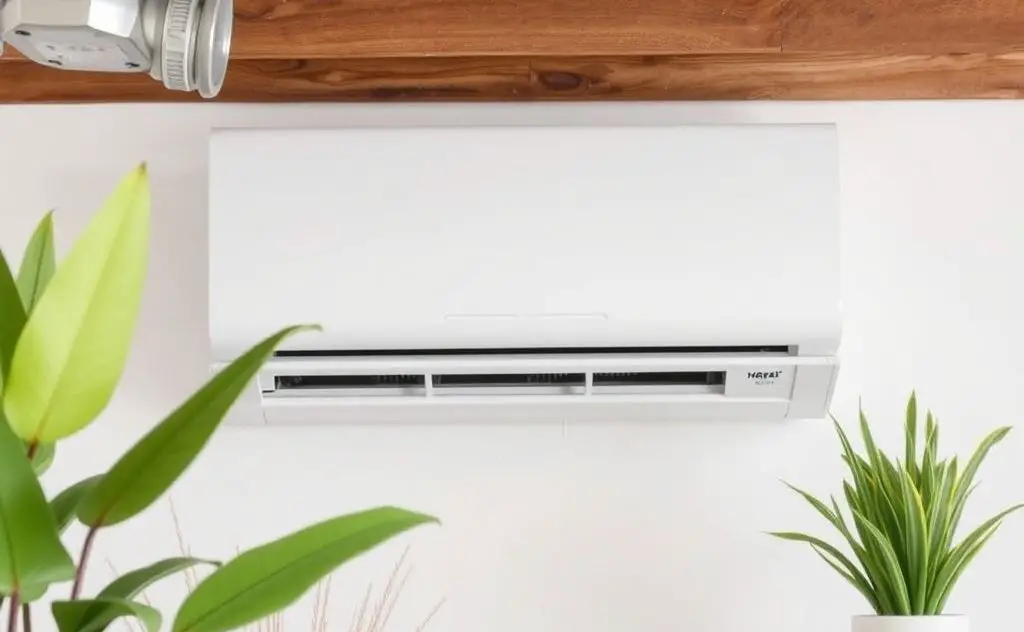Regularly clean or replace filters, check for proper airflow, and schedule annual professional maintenance to ensure optimal performance of HVAC air purifiers.
Keeping your HVAC air purifier in top condition ensures cleaner indoor air and extends the life of your system. Proper maintenance prevents costly repairs and maintains peak efficiency.

1. Filter Cleaning & Replacement
Dirty filters reduce airflow and force your system to work harder. This increases energy costs and decreases air quality.
How often to change filters:
- Basic fiberglass filters: Every 30 days
- Pleated filters: Every 90 days
- HEPA filters: Every 6-12 months
For homes with pets or allergies, check filters monthly. Some advanced systems like high-efficiency propane heaters have specialized filters requiring unique care.

2. UV Light Maintenance
UV lights kill mold and bacteria but lose effectiveness over time.
| UV Light Type | Replacement Schedule |
|---|---|
| Standard UV bulbs | Every 12 months |
| High-output UV bulbs | Every 9 months |
3. Ductwork Inspection
Leaky ducts reduce efficiency by up to 30%. Inspect annually for:
- Visible gaps or tears
- Dust buildup at connections
- Loose insulation
Consider professional duct sealing if you notice significant air loss. This complements systems like built-in gas heaters that share ductwork.
4. Coil Cleaning
Dirty evaporator and condenser coils reduce efficiency by up to 40%.
Cleaning steps:
- Turn off power to unit
- Remove visible debris with soft brush
- Apply coil cleaner (non-acidic for aluminum coils)
- Rinse gently with water
5. Drain Line Maintenance
Clogged drain lines cause water damage and mold growth.
Monthly maintenance:
- Pour 1 cup vinegar down drain line
- Check drain pan for standing water
- Clear algae with stiff brush
6. Electrical Component Check
Faulty electrical connections cause 80% of HVAC failures.
Annual inspection should include:
- Tightening all connections
- Checking capacitor readings
- Testing contactor points
7. Professional Tune-Ups
Schedule professional maintenance twice yearly. A qualified technician will:
- Check refrigerant levels
- Test system controls
- Measure airflow
- Inspect heat exchanger
According to Energy.gov, proper maintenance can reduce cooling costs by 15-20%.
For optimal performance, combine these maintenance practices with quality equipment like EPA-recommended air purifiers that meet your home’s specific needs.
